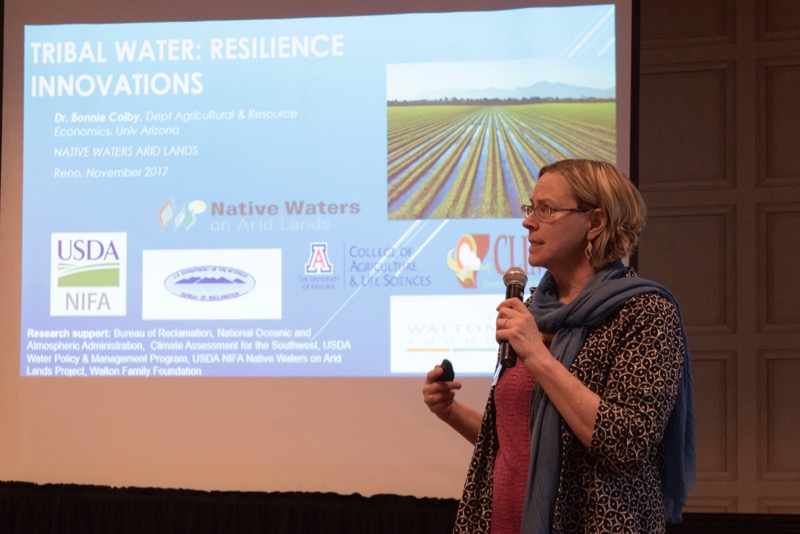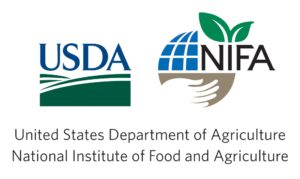Native Waters on Arid Lands Podcast
Episode 11 – Tribal water sharing agreements with Dr. Bonnie Colby
In Episode 11 of the Native Waters on Arid Lands podcast, we speak with Dr. Bonnie Colby about her research with the NWAL project in the areas of economics and tribal water resources. Colby is currently working on a guidebook that will help tribes navigate the process of setting up water sharing agreements. She is a professor of agriculture, resource economics, hydrology and water resources at the University of Arizona in Tucson.
Listen to the podcast and read below to learn more about Colby and her work. A transcript of this podcast is available here. You can subscribe to this podcast on iTunes, Google Play and Stitcher.
Bonnie Colby’s research
Dr. Bonnie Colby has spent more than 30 years working with students and tribal members on issues related to economics and water resources through her work at the University of Arizona in Tucson.
In her work with the NWAL project, Bonnie is doing research on the economic benefits and tradeoffs related to tribal water sharing agreements. Water sharing agreements are arrangements in which tribes share their water resources with nearby cities or non-tribal water users in exchange for payment.
Tribes often have senior water rights in their regions, Colby explains in the podcast. This is because most reservations were established before many of the non-tribal farms and settlements that are present today. By leasing reservation water to non-tribal users during droughts, tribes receive a source of income that can be invested back into the community in other ways.
Developing a guidebook
Colby is now working with other members of the NWAL team, her graduate students, leaders from tribal colleges, and tribal government leaders to develop a practical guide for helping tribes to set up new water sharing agreements.
In setting up such an agreement, tribes must consider things like what a fair price would be for their water, and how their decision will impact future generations of people on the reservation. In return, tribes receive financial benefits, and become central players in the regional water dialogue, Colby explains. Colby hopes that through the creation of this guidebook, tribes will be better able to navigate the complex process of setting up a water sharing agreement.
“I would like to see tribal decision-makers feel more comfortable, confident, and really able to negotiate on behalf of their tribe’s interest in this very complex and specialized area,” Colby said.
Colby expects that a draft of this guidebook will be complete later in 2018, and the final version will be available here on the NWAL website for public use sometime next year.
Additional Resources
Links to new research by Bonnie Colby related to water and tribal economies:
- Deol, S. and B. Colby. 2018. Tribal Economies: Water Settlements, Agriculture, and Gaming in the Western U.S. Universities Council on Water Resources Journal of Contemporary Water Research & Education 163: 45-63. Available at: http://ucowr.org/files/Journal/Issues/163/163_Deol_and_Colby.pdf
- Colby, B. and R. Young. 2018. Tribal water settlements: economic innovations for addressing water conflicts. Western Economic Forum. 16(1): 38-46. Available at: http://ageconsearch.umn.edu/record/273677/files/6.pdf
More, on the podcast
To learn more about Bonnie Colby’s work with the Native Waters on Arid Lands project, listen to podcast episode 11, below. Music for this podcast came from Podington Bear (song title: Bit Rio) on the Free Music Archive under a Creative Commons license. Funding for this project is provided by a grant from USDA-NIFA.
Podcast: Play in new window | Download
Subscribe: RSS




